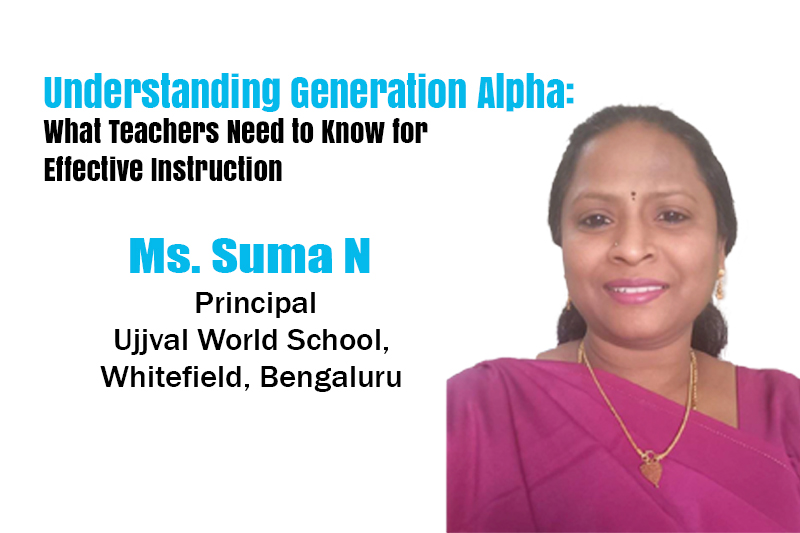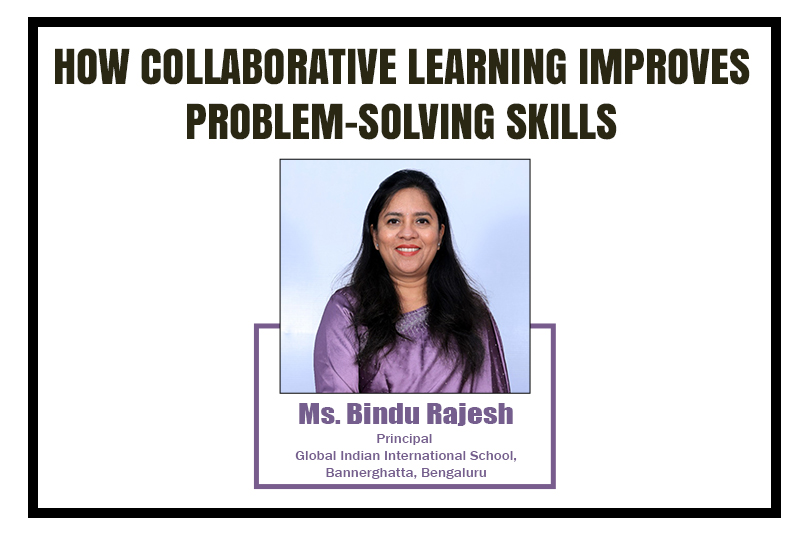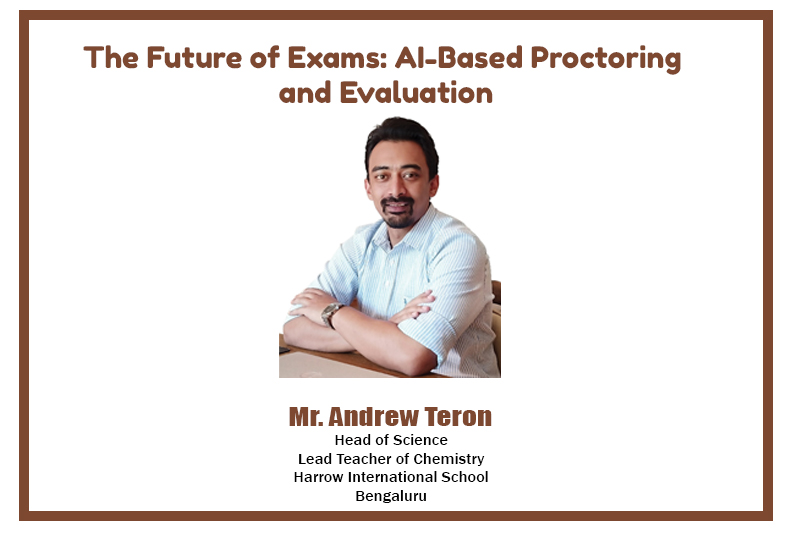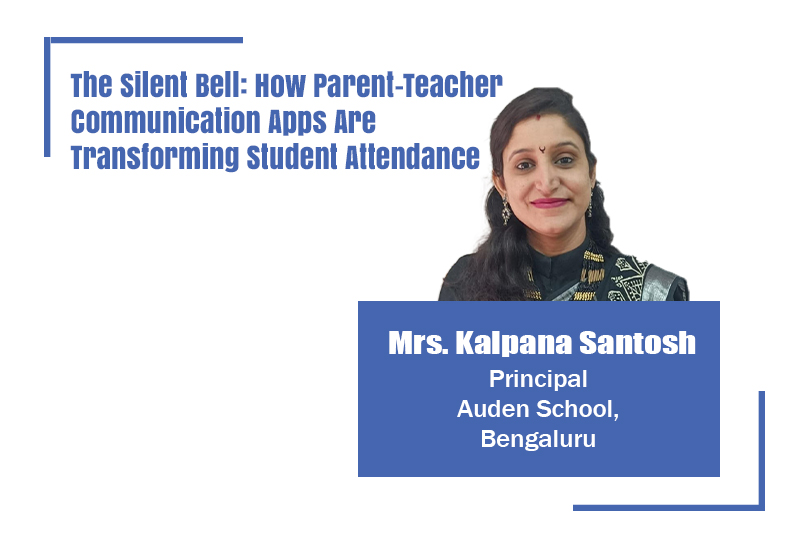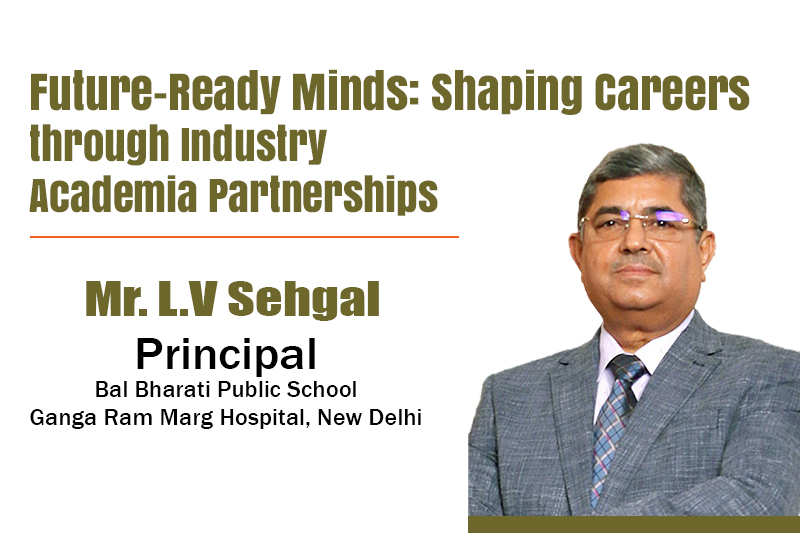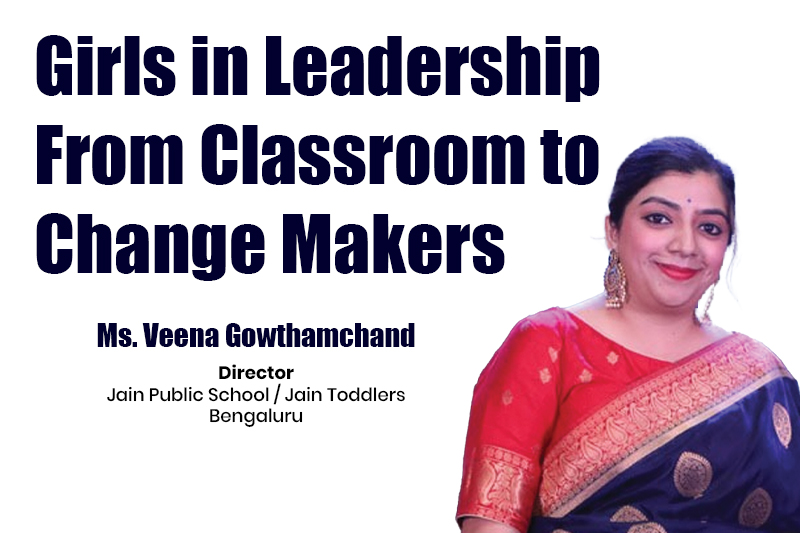Understanding Generation Alpha: Insights by Suma N, Principal of Ujjval World School
"Teaching Generation Alpha requires more than knowledge delivery — it demands creativity, connection, and courage to reshape learning for a changing world."
— Suma N, Principal, Ujjval World School
Generation Alpha — the cohort born from 2010 onward — represents a significant shift in the educational landscape. Raised in an environment saturated with technology, global connectivity, and instant access to information, these young learners are redefining what it means to teach and learn in the 21st century.
Ms. Suma N, Principal of Ujjval World School, provides a compelling perspective on how educators must evolve to meet the needs of this forward-thinking, tech-savvy generation. Through her insights, we explore the characteristics of Generation Alpha, the challenges they present, and the most effective teaching strategies to foster their growth.
Who Is Generation Alpha?
Generation Alpha is the first to grow up entirely in the digital age. From infancy, they’ve interacted with smartphones, tablets, smart TVs, and virtual assistants. This has shaped their worldview and influenced how they process information and engage with the world around them.
Unlike previous generations, their interaction with digital tools isn’t learned — it’s instinctive. As digital natives, they expect technology to be a seamless part of their environment. Education, therefore, must adapt to this expectation to remain relevant and effective.
Rethinking Teaching for Digital Natives
Traditional teaching methods — such as one-way lectures and rote memorization — often fall short for these learners. According to Ms. Suma N, today’s classrooms must evolve into dynamic, tech-integrated learning environments.
Smartboards, gamification, interactive media, and blended learning are not just enhancements — they are necessities. Generation Alpha learners thrive when they are engaged in active, visually stimulating experiences. Using platforms that allow real-time interaction, immediate feedback, and multimedia content helps cater to their sensory learning preferences.
But technology is just the starting point. Effective teaching strategies must also account for their shorter attention spans and inclination toward quick, satisfying results. Educators should aim to deliver content in bite-sized, engaging segments, infused with visuals, storytelling, and hands-on tasks. Movement-based and experiential learning can help improve focus and retention.
Beyond Academics: A Holistic Perspective
Education for Generation Alpha must extend beyond textbooks and test scores. These children are growing up during an era of global climate discourse, heightened awareness of mental health, and increased emphasis on social equity. As a result, they are developing strong values around inclusion, fairness, and emotional wellness from an early age.
Classrooms, therefore, should double as safe, inclusive spaces that foster open dialogue, empathy, and collaboration. Ms. Suma N emphasizes the importance of social-emotional learning (SEL) — cultivating students’ emotional intelligence, self-awareness, and relationship skills. By prioritizing SEL, teachers help build resilience, confidence, and the ability to navigate complex social dynamics.
The role of the educator shifts here from instructor to mentor and facilitator, helping students find their voice, express themselves authentically, and engage respectfully with others.
Personalized Learning: Meeting Students Where They Are
In an age where digital platforms tailor content to individual preferences, Generation Alpha expects the same level of customization in their learning experiences.
At Ujjval World School, personalization is not a luxury — it’s a fundamental principle. Students are encouraged to explore concepts through a variety of mediums: presentations, digital storytelling, project-based assignments, and even coding or content creation. Such flexibility ensures that each learner finds the method of expression that suits them best.
Adaptive learning technologies, which track student progress and adjust content accordingly, allow educators to identify learning gaps early and respond with targeted instruction. This form of personalized learning ensures that students are neither bored nor overwhelmed — they are appropriately challenged at every stage of their development.
Tackling the Challenges of a Screen-Centric Generation
While digital tools offer immense learning potential, they also come with risks — particularly overexposure to screens, reduced physical activity, and declining face-to-face communication skills.
Ms. Suma N underscores the importance of balance. At Ujjval World School, technology is leveraged to enhance learning but is thoughtfully integrated with traditional methods that nurture imagination, physical wellbeing, and social connection. Outdoor activities, music, visual arts, play-based learning, and physical education are integral components of the school’s approach.
These elements not only promote holistic development but also help students disconnect, recharge, and return to academic tasks with renewed focus.
Preparing for the Future, Together
As educators, the challenge isn’t simply to keep up with Generation Alpha — it’s to anticipate and guide their journey toward responsible, compassionate citizenship. This requires continuous professional development, a willingness to embrace new methodologies, and a deep commitment to student well-being.
Teachers must now wear many hats — digital navigators, emotional coaches, and lifelong learners themselves. By remaining flexible, curious, and connected to their students’ needs, they model the very mindset that the future demands.
The Ujjval Way: A Vision Rooted in Innovation and Empathy
Under the leadership of Ms. Suma N, Ujjval World School has embraced this transformation with a forward-thinking approach. The school integrates the latest teaching strategies with strong emotional and ethical foundations, ensuring that students not only excel academically but also develop the tools to lead with empathy in a complex world.
This educational philosophy reflects the belief that effective teaching is no longer about transferring information, but about igniting curiosity, empowering learners, and building meaningful connections.
Final Thoughts: Teaching the Future
Educating Generation Alpha isn’t just a new challenge — it’s a remarkable opportunity. With the right tools, mindset, and heart, teachers can create classrooms that inspire innovation, compassion, and global awareness.
As Ms. Suma N so aptly puts it, teaching this generation calls for more than expertise; it calls for creativity, connection, and courage. It’s about reshaping the way we think about education and redefining success for a generation that is ready to change the world — and perhaps already is.
